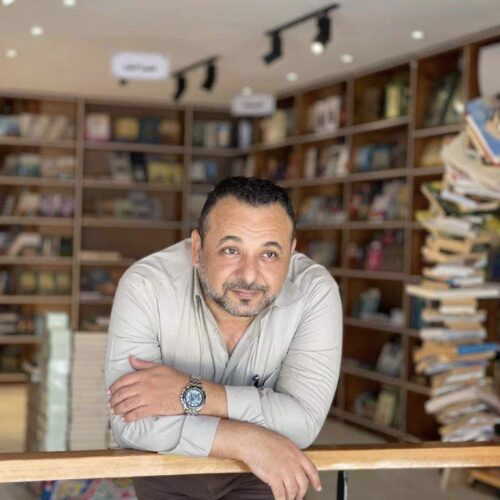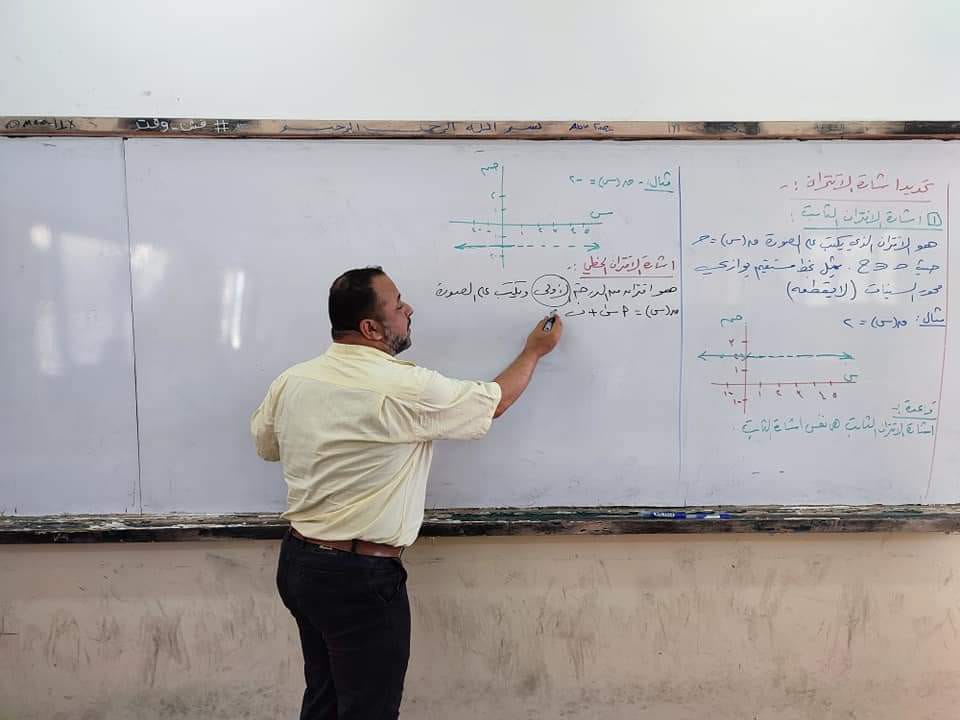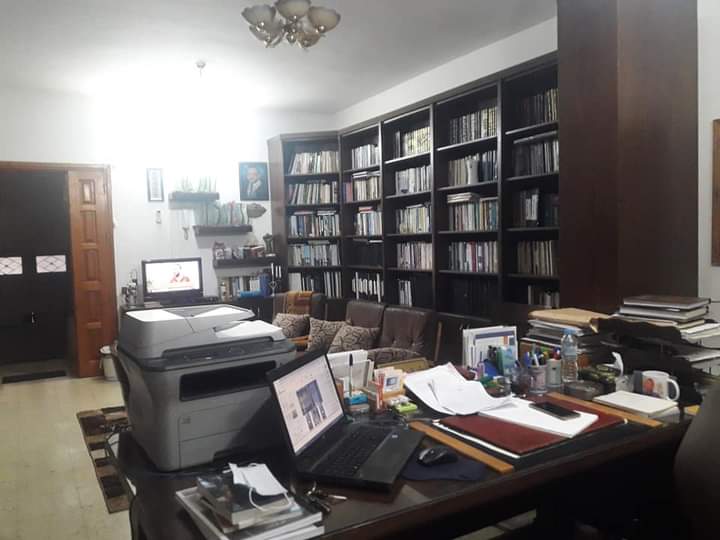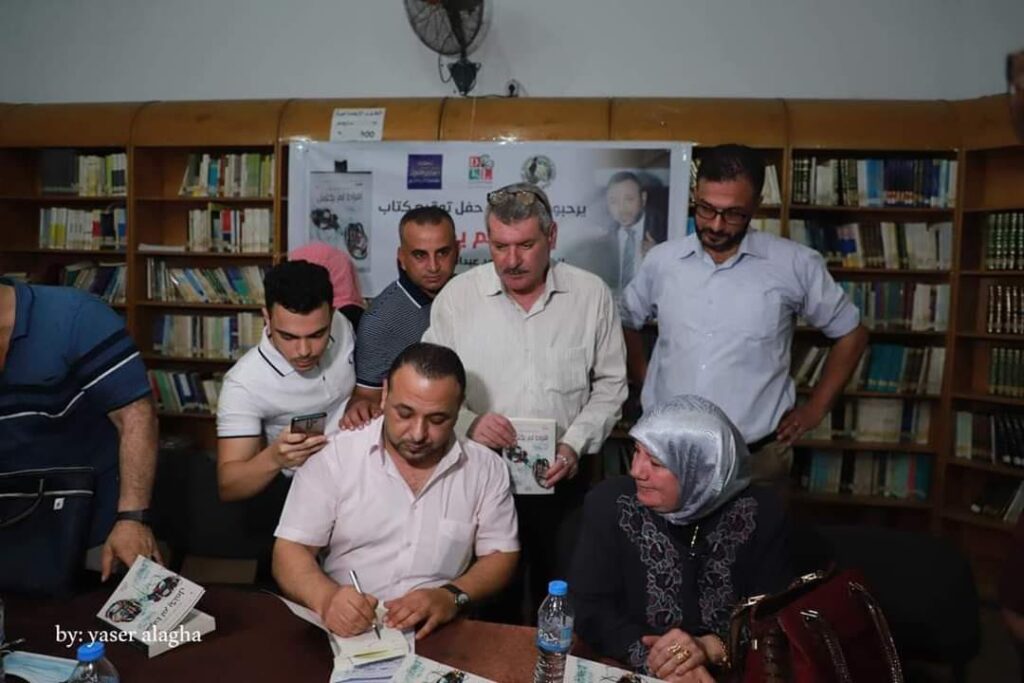University professor flees from Gaza City, family now homeless and hungry in Rafah
Perhaps, the biggest challenge we face comes in the form of hopelessness. We have little chance of returning to our homes. We also feel an incredible sense of alienation within displaced areas.
- 2 years ago
April 14, 2024

RAFAH, Gaza ꟷ The long walk from Gaza City to the central region of Gaza Strip will remain forever imprinted in my memory. I never imagined one day I would live in the basement of a warehouse in Rafah without a bathroom.
Before the war in Gaza, I lived a normal life. I worked as a university professor and researcher in mathematics and pedagogy. I won international awards and authored many books and papers. Now I watch my wife and five children stand in long queues to use communal toilets in displacement camps. After October 7, 2023, our lives became a nightmare.
Read more stories from Gaza at Orato World Media.
They fled to Rafah to stay with family, only to have the house destroyed by a bomb
My two-story house in Gaza City featured a library on the ground floor with thousands of books. In that space, I enjoyed a nice office with internet where I could work.
My wife was preparing to start her master’s degree. Meanwhile, my eldest son Mohamed and daughter Sarah counted down the days to their graduation from the College of Engineering and the College of Information Technology. I always aspired for better for my family.
Yet, when the displacement and dispersal of the citizens of Gaza began, qualifications and social status had no meaning. When we fled our home, we left with nothing but the clothes on our backs. The ensuing bombardments destroyed many of our possessions.
Even before the war, I often felt like life in Gaza drained people’s energy and repelled their talent and potential. It became my mission to get my family out of Gaza to pursue their studies abroad, but all my hard work to find them scholarships failed once the war started.
As we moved from city to city, I began running out of money, trying hard to adapt to the conditions of war. I desperately wanted to shield my children from despair. We soon found ourselves in the house of a relative in Rafah, sharing a single home with three other families.
When a bomb exploded, the house became inhabitable. This is when we resorted to living in the basement of a warehouse. With each new displacement, we must start from scratch, as if we are building a new home all over again.
Hope fades: we will likely never return home
In the midst of this tense atmosphere, the month of Ramadan arrived. [Ramadan, the ninth month of the Muslim calendar, is a holy month of fasting, commemorating God revealing the Qur’an to the Prophet Muhammad.]
I view Ramadan as a month of goodness and blessings. For me, it has been a time of academic achievement. Ramadan includes rituals related to time with family and friends, but I also often passed the night amongst my books, staying up until dawn. Ramadan always brought me joy – from its arrival to its end.
This year, the uncertainty made me apprehensive about Ramadan. As a people, we seem to have lost the past and the present. I found myself wondering, “How will the season embrace us? We have let so many moments of anticipation slip by already. How can I receive Ramadan when I have relinquished everything?”

The woes of life in Gaza remain unending. Food prices have risen 10 times, and we cannot access basics like flour or bread. Medicines vanished from the shelves, and we have no gas or electricity. For so long we stayed on the move, constantly seeking refuge. Every day presents new struggles, and each one takes a serious toll on our mental state.
Perhaps, the biggest challenge we face comes in the form of hopelessness. We have little chance of returning to our homes. We also feel an incredible sense of alienation within displaced areas. It seems as through racism in aid distribution causes failures in supplies reaching those in the most desperate need. As a professor and a writer, I felt inspired to begin a diary entitled, “How many deaths want us.” I hope to publish it as a book one day.
We cannot escape and we cannot go: Israel, we need a solution now
It was never easy to leave Gaza. Now, it feels impossible. The fees to cross from Rafah for a family the size of mine can exceed $40,000. In desperation, I posted an advertisement on my Facebook account trying to sell what is left of my house and belongings in Gaza City. If I sell it, I will use the money to fund my family’s journey out of here.
My house sits 40 kilometers (25 miles) away, yet I feel uncertain about its fate. Finding someone willing to buy it all proves difficult. So, until I can afford to pay the fees to cross through Rafah, my family and I attempt to adapt to wartime conditions. In Gaza, the international community fails us. You cannot simply reduce this problem to a conversation about humanitarian relief efforts.
The core problem lies in the question, “What fault did we, the Palestinian civilians, commit to face such neglect?” Gaza has become unsuitable for human habitation. The total infrastructure is destroyed. To uphold international peace and security, and to ensure innocent Palestinians have a shot at a decent life, the international community must prioritize a real solution. It remains crucial to recognize a two-state solution to achieve peace in the Middle East.

I hear the messages from across the world. Believers in humanity and in the divine condemn the actions toward Gaza and the lack of action to end this assault. The international community must work vigorously to impose a ceasefire. Hold Israel accountable for its role as an occupying state. By choosing occupation, Israel becomes responsible for ensuring a dignified life for the Palestinian people while working towards a permanent solution for future generations.
Sadly, those Palestinians who lost loved ones will never forget what happened here, making it even more critical Israel offer a solution now. Help us move past the events and save what can be saved before it is too late.
What should happen next? A plea for peace
The time for theorizing and appealing has ended. Without a solution, the blade of war will extend beyond Gaza to neighboring areas. Palestinians must be granted their rights, or we will face war after war. We have no system now for water, sewage, electricity, or internet. We have nothing. Even when this war ends, the battle for securing our livelihoods begins. We face the hard work of repairing a devastated infrastructure, reconstructing all of Gaza, gathering and distributing necessities, and seeking future solutions for a Palestinian state along the 1967 borders.
We Gazans deserve the right to education, mobility, health, and human dignity. What we see and are surrounded by in Gaza now sits wholly outside the realm of humanity. I feel confident the full picture of our suffering has not reached the international community. The blackouts here, imposed by the occupation and its military operation, limit information flow. I suspect our experience in Gaza also sits outside the framework of international humanitarian law. Many argue it falls in the category of war crimes against humanity [and that Gaza and the occupied territories have faced war crimes for decades].
With people globally rising up to support Gaza, the time is now. Major powers preventing the Security Council from adopting a ceasefire solution must stop. Yet, even if the ceasefire holds, I fear other problem. Gaza Strip will face chaos, assaults, attacks on public funds, and the rise of bandit culture targeting aid convoys during the next phase.
People may voluntarily migrate out of Gaza due to the deteriorating infrastructure and inevitable increase in crime. I fear war and rockets, but I also dread the looming post-war chaos inside Gaza if not managed properly. We need clear post-war recovery plans.
To those who ask, “How are the people of Gaza really doing,” I say this. Every pain one feels in war has a backstory. Every bombed house held endless memories. Inside every collapsed shop, people lived unforgettable lives. Our reality of daily life is akin to standing for 150 days in a room, forbidden to lean on anything.
































































































































































































































































































